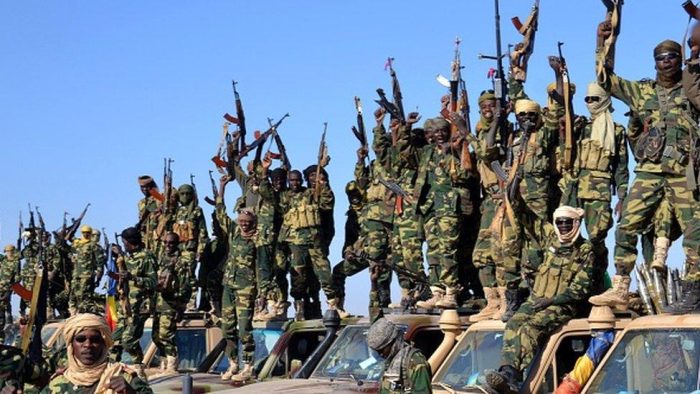Thomas Marama is praying less often these days.
His faith has not waned, but with the height of the Boko Haram conflict behind him, the Nigerian pastor no longer feels the need to plead to God each time he goes to a crowded market or gets caught in a traffic jam.
“You were always scared that maybe there was going to be an explosion,” Marama told AFP from his church compound in a Maiduguri neighbourhood, where residents used to hear gunshots ring out every night.
Ask a group of people in the Borno state capital which years were the worst of the conflict, and they’ll all give a slightly different answer: for Marama, it was from 2010 to 2014; a local restaurateur put it from 2011 to 2015; an imam said 2015 to 2016.
But they all remember the same thing: gun battles, suicide bombings, an unending tension in the air.
None of that anxiety was on display recently when an AFP correspondent visited Maiduguri, which hasn’t seen a major attack since 2021.
“We were praying that peace would come back,” said Umar Mohammad, a 32-year-old vegetable vendor, after wrapping up a game of football with his friends.
It’s the exact kind of gathering that was impossible before: late at night, a big crowd, bringing together people from across town.
The city has been emerging from the nadir of the violence for about a decade: as far back as 2016, the bolder of Maiduguri’s youth were reportedly heading to clubs before the city’s 10:00 pm curfew, staying out until it lifted in the morning.
Today, bicycles and bright yellow three-wheeled “keke” taxis flit along paved streets or new highway flyovers direct traffic over packed roundabouts.
Electric vehicle charging stations are under construction. Markets throng during the day, and men stay out late eating grilled fish or playing snooker.
– Militants still active –
Reminders of the conflict are never far off.
Military pick-ups lumber through town, their beds filled with soldiers whose helmets shield them from the hot afternoon sun.
The kekes and bicycles they share the road with have boomed in part due to a ban on motorcycles, jihadists’ vehicle of choice.
Today’s calm was won with harsh curfews and widespread checkpoints during the worst of the crisis — and, rights groups say, mass arrests and extra judicial killings.
On the west side of town, where a market stays busy into the evening, jerseys sit out for sale — as well as military style boots popular with civilian militia members who work alongside the army.
“It’s where you have all the institutions of the state,” said Malik Samuel, an Abuja-based conflict researcher with Good Governance Africa (GGA), of Maiduguri’s improved security. “It’s deliberate, securing the capital.”
It’s not as though jihadists have given up attacking Maiduguri, he added, crediting its increased security with better intelligence gathering.
Though violence has waned since its peak a decade ago, the countryside is still on fire, from both Boko Haram and rival breakaway Islamic State West Africa Province (ISWAP).
ISWAP overran at least 17 Nigerian military bases in the first six months of 2025, according to a GGA tally, aided by an uptick in its use of drones, nighttime attacks and foreign fighters.
– ‘Idleness’, unemployment –
Within the city, not all are sharing in its prosperity.
For the residents of the El Miskin camp for internally displaced persons, on the outskirts of town, there is no “business,… no farmland, no proper living conditions, no schools”, said camp chairman Hashim El Miskin.
Government strategy for years has been to close the camps down, and return people to the countryside.
Some 700,000 children are out of school across the state, a figure exacerbated by poverty and people fleeing violence.
Multiple residents warned of “idleness” among the youth, who face high unemployment.
During the worst years, restaurant owner Idris Suleiman Gimba recalled not being allowed to enter a mosque unless you were known as a regular. It was a blow, he said, to Maiduguri’s culture of hospitality.
“We’re seeing things coming back to normal, and it’s going to take time,” Gimba, 54, said. “Borno is blessed.”






